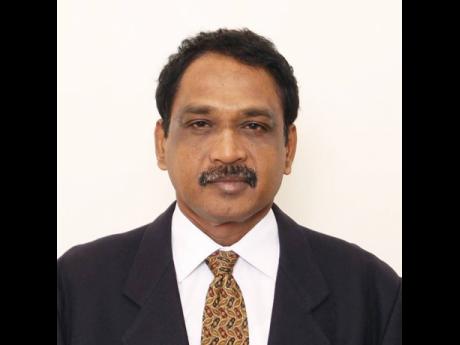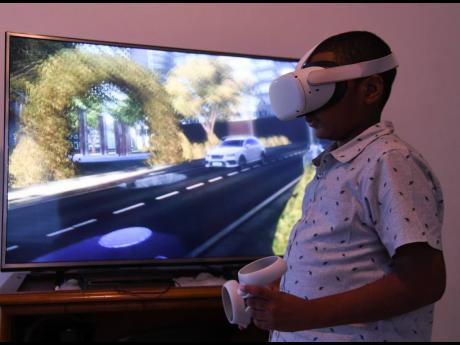Teach coding to infants, tech expert urges
Jamaica has been urged by a senior technology expert to begin teaching coding to three-year-olds and even younger children who are just learning to speak in order to tap talent in an emerging industry here.
That recommendation has been stirred by the success of Jamaican innovator, Dominic Darby, who triumphed over 800 competitors from 70 countries to cop a top prize in the international XPRIZE Code Games Challenge.
The 11-year-old was introduced to coding and the platform Scratch at age six during a summer programme held at The University of the West Indies.
Young children should be given fundamentals such as sequencing and looping, said Damith Wickramanayake, associate professor in the Faculty of Engineering and Computing at the University of Technology, Jamaica (UTech).
“You don’t need to teach them rocket science,” Wickramanayake quipped.
Wickramanayake said Jamaica has “very bright children” whose hunger for logical thinking is often not satisfied in traditional schools.
“When they come to the university level, they are fighting to learn a little bit of manipulation. They don’t have a free mind, and that is what is needed to teach them programming,” he said.
Wickramanayake believes that all science, technology, engineering, and mathematics (STEM) teachers should be charged with teaching computing basics at the primary level.
“Once we teach the fundamentals, they will run fast,” he told The Gleaner.
The associate professor is close to retirement and has plans to teach programming to children in his golden years.
He found support in head of UTech School of Computing, Professor Sean Thorpe, who highlighted that Jamaica has brilliant youth who are interested in coding but urged for steps to be taken to engage expatriates to build capacity.
“The early childhood educators also need to have special training in problem solving and coding. It is something that we have not done in a very deliberate way,” Thorpe told The Gleaner.
He said any efforts to introduce programming on a large scale to Jamaican children should not exclude those living in rural areas.
Access to the Internet might be a limitation, but he recommended that zones of excellence be set up to drive coding through collaboration with the Universal Service Fund, which has established public Wi-Fi in several town centres.
In January, Prime Minister Andrew Holness launched the Amber HEART Coding Academy to train thousands of young Jamaicans as software developers.
It is a partnership between the HEART NSTA/Trust and the Amber Group, in collaboration with the Housing, Opportunity, Production and Employment (HOPE) Programme and the Art of Living Foundation.
Holness had said that the coding academy would significantly improve the employability of citizens and serve as the catalyst for a new age of digital transformation locally.
For the initial phase, 100 participants have been engaged in two cohorts of 50 and will undertake an intensive and immersive six-month training programme taught by master coders, after which they will undergo a six-month internship.
Further, Thorpe said that there is no shortage of talent needed to encourage coding among Jamaicans, but deliberate efforts need to be made to leverage the technology and resources.
Meanwhile, president of The Mico University College, Dr Asburn Pinnock, shared that while he had no data on the number of STEM educators focused on coding, he suspected that there weren’t enough.
“The culture isn’t as patriotic as it used to be, and there are more opportunities overseas which tend to be more lucrative.
“To keep people here, you have to really provide incentives - housing, healthcare, education, motor vehicle,” he said.
Pinnock agreed that introducing coding at an early age is critical but said that it must first be infused in the curriculum at teachers’ colleges, followed by government policy to support its implementation.
The president said there has been a lull in establishing the National STEM Centre for Research and Innovations in Teaching and Learning at The Mico University College, owing to the impact of COVID-19.
Mico intends to revise and brief Education Minister Fayval Williams on the state of affairs as the institution tries to get back on track.
“It will take care of all these coding issues - training of teachers and the type of competency-based education that we have been longing for,” Pinnock said.


